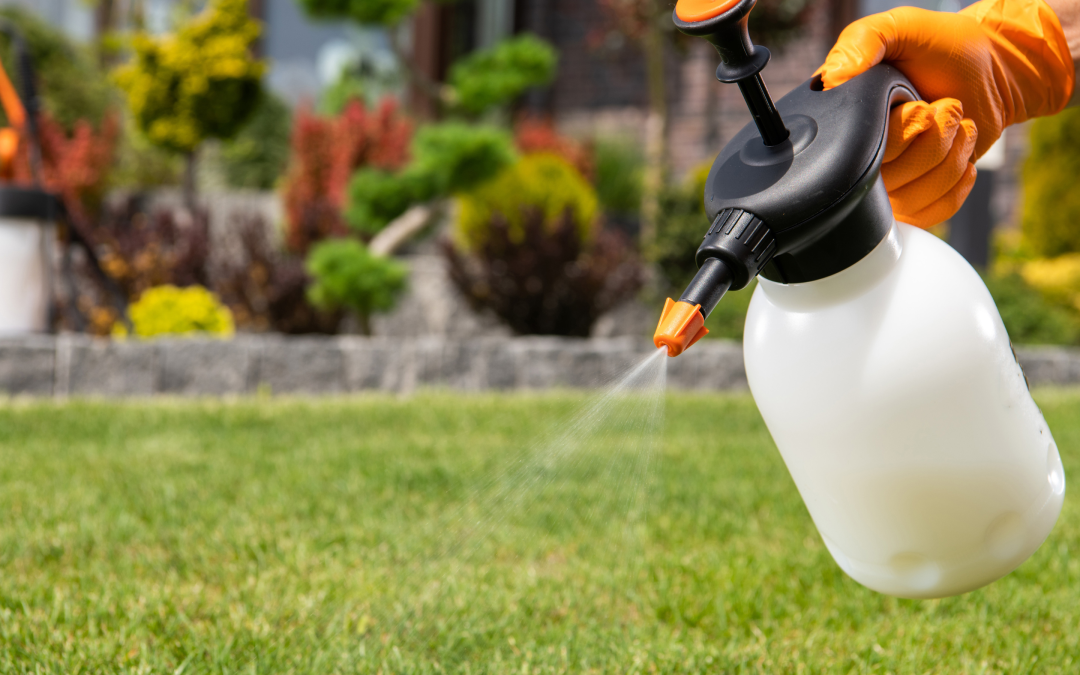The gut microbiome consists of microbes (flora) that are both helpful and potentially harmful. The great majority of these microbes are bacteria. Most are symbiotic (where both the human body and microbiota benefit) and a much smaller amount are pathogenic (promoting disease). In a healthy body, pathogenic and symbiotic microbes coexist without problems. But if there is a disturbance in that balance brought on by infections, diet, or the prolonged use of bacteria-destroying medications like antibiotics, then dysbiosis can occur which can stop these normal interactions. As a result, the body may become more susceptible to disease. In general, many factors like your family and genetic history and how your body is built can affect your gut health.
There are also factors that you can control, like stress and diet. When your gut functions properly, there’s a good balance of bacteria helping your body process and get energy from the foods you eat, clear toxins, fight against disease, and boost your mood. It also helps you stay free of symptoms like diarrhea, constipation, loose stools, gas, bloating, and abdominal pain.
Here is a list of some of the best ways to improve your gut flora, which can help alleviate or prevent dysbiosis.
Dietary Factors that Can Improve Gut Flora
Consume Fermented Foods To Improve Gut Flora
Fermented foods are another great source of probiotics. Plain yogurt, kefir, sauerkraut, kombucha and kimchi all contain helpful bacteria from the fermentation process. Yogurt specifically may help calm gastrointestinal conditions like diarrhea, inflammatory bowel disease and constipation. One study found people who eat yogurt regularly have more lactobacilli, a gut-benefitting bacteria, in their intestines, as well as fewer enterobacterium, a type of bacteria linked with inflammation [1].
Cut Back on Processed Foods To Improve Gut Flora
Be especially aware of dietary emulsifiers. These are food additives that improve the texture and consistency of various processed foods, by holding food particles together. They’re added to foods like salad dressing to prevent separation of oil and water, ice cream and gelatin desserts to improve their texture and mouthfeel, and milk alternatives to prevent their components from separating out. While certain foods naturally have emulsification properties, like egg yolks, emulsifiers can also be chemically synthesized or extracted. It is speculated that unlike foods with natural emulsification properties, chemically processed emulsifiers may have detrimental effects on our gut microbiota and as a result, promote intestinal inflammation and could increase risk for inflammatory bowel disease (IBD) and be detrimental to the gut microbiome as a whole [2].
Eat Prebiotics and High Fiber Foods To Improve Gut Flora
Many high-fiber vegetables, fruits, and whole grains are prebiotics, which serve as “food” for good bacteria in the body. Furthermore, fiber is a plant-based nutrient that has been shown to reduce the risk of metabolic diseases by stimulating the growth and diversity of good bacteria in the gut, according to research. In addition to fruits and vegetables, whole grains are also a rich source of fiber. Therefore, incorporating unprocessed foods such as apples, asparagus, bananas, corn, garlic, sweet potatoes, spinach, beets, carrots, fennel, flaxseeds, leeks, onions, oats, lentils, and walnuts into your diet can help improve gut health.
Eat a Wide Variety of Fruits and Vegetables To Improve Gut Flora
One of the best ways to increase the diversity of your gut microbiome, is to eat a wide variety of whole plant foods. Data published from The American Gut Project demonstrated that those who eat greater than or equal to 30 plant varieties per week have a more diverse gut microbiome compared with those who eat less than or equal to 10 plant varieties per week [3]. Try to “eat the rainbow” by mixing and matching plant foods with different colors. Vegetables are loaded with fiber that is consumed by the good bacteria in your gut. It has been observed that people who follow a diet rich with fruits and vegetables are less likely to grow disease-causing bacteria. These foods are also rich in polyphenols, which “good” gut microbes love.
Minimize Artificial Sweeteners For Healthy Gut Flora
Experts now believe that these compounds interact with the gut microbiome and evidence suggests that artificial sweeteners might disrupt your gut microbiome [4]. Although much of the research so far has involved animals, there is evidence that certain artificial sweeteners can influence gut bacteria in humans [5]. Rather than regularly consuming artificial sweeteners, it’s likely healthier to consume real sugar in moderation.
Eat Foods Rich In Polyphenols To Improve Gut Flora
Polyphenols are plant compounds that have many health benefits, including reductions in blood pressure, inflammation, cholesterol levels, and oxidative stress. Some examples of foods rich in polyphenols are cocoa and dark chocolate, red wine, grape skins, green tea, almonds, onions, blueberries, and broccoli. Polyphenols from cocoa can increase the amount of Bifidobacteria and Lactobacilli in humans and reduce the quantity of Clostridia [6] while polyphenols in red wine have even been shown to increase levels of beneficial bacteria in people with metabolic syndrome [7].
Take Probiotic Supplements To Improve Gut Flora
Probiotic supplements have become increasingly popular as word of the importance of gut health continues to spread. While probiotic supplements aren’t a panacea for gut health, there’s some evidence they can give the microbiota a boost and restore gut health under certain conditions. Probiotics are chock-full of live bacteria that will help ensure your gut is populated by mostly the good types of microbes. There are many probiotic products out there that claim to have live cultures but do not, so it is important to do your research beforehand or even speak to your doctor or a registered nutritionist.
Non-Dietary Factors that Can Improve Gut Flora
Exercise Regularly To Improve Gut Flora
Movement is medicine for so many parts of the human body, including the gut microbiome. Exercising is one of the best strategies for a healthier gut and may increase microbiome diversity [8].
Get 7 – 8 Hours of Sleep Each Night To Improve Gut Flora
Scientists have shown that the gut microbiome can influence sleep and vice versa. And some studies have shown that better sleep is linked to increased gut bacteria diversity [9]. Although scientists haven’t fully explored the links between gut bacteria and sleep in humans, getting a good night’s rest will undoubtedly benefit your overall health.
Avoid Taking Unnecessary Antibiotics To Improve Gut Flora
If probiotics are your gut’s best friend, then antibiotics are your gut’s worst enemy! Antibiotics work by destroying all bacteria, which makes them very effective for treating illnesses, but very bad for your microbiome. The antibiotic cannot recognize the difference between good gut bacteria and bad bacteria. So, take antibiotics only when necessary and always as directed by your doctor and make sure to take a probiotic daily for the duration of your prescription to help replenish your gut bacteria.
Reduce Stress To Improve Gut Flora
Experts in gut health often cite the “gut-brain connection” and refer to the gut as “the second brain.” While we don’t know everything about their relationship, we do know that mental health and the gut are intimately connected [10]. Establishing balance in your life will support your mental and emotional health and optimize your gut and overall health. Stress can negatively affect your microbiome and you need a healthy microbiome to help you manage your stressors. Whether its psychological, physical, or environmental, stress may disrupt the structure and function of your gut microbiome. Finding ways to reduce your stress levels may improve your gut health. Meditating, walking, getting a massages, pending time with friends or family, laughing, practicing yoga, spending time with a pet are all examples of ways to reduce stress.
All of the methods discussed above have been shown to improve your gut microbiome in general or your good bacteria (flora) specifically to some degree. While it can be beneficial to your gut health to adopt an overall healthy lifestyle, you should still talk with a medical professional if you are going to make major dietary changes, major lifestyle changes or begin taking supplements.
References
[1]Oskar Adolfsson, Simin Nikbin Meydani, Robert M Russell, Yogurt and gut function, The American Journal of Clinical Nutrition, Volume 80, Issue 2, August 2004, Pages 245–256, https://doi.org/10.1093/ajcn/80.2.245
[2] https://www.bmj.com/content/374/bmj.n1554
[3] https://journals.asm.org/doi/10.1128/mSystems.00031-18
[4] Suez, J., Korem, T., Zeevi, D., Zilberman-Schapira, G., Thaiss, C. A., Maza, O., Israeli, D., Zmora, N., Gilad, S., Weinberger, A., Kuperman, Y., Harmelin, A., Kolodkin-Gal, I., Shapiro, H., Halpern, Z., Segal, E., & Elinav, E. (2014). Artificial sweeteners induce glucose intolerance by altering the gut microbiota. Nature, 514(7521), 181–186. https://doi.org/10.1038/nature13793
[5] Francisco Javier Ruiz-Ojeda, Julio Plaza-Díaz, Maria Jose Sáez-Lara, Angel Gil, Effects of Sweeteners on the Gut Microbiota: A Review of Experimental Studies and Clinical Trials, Advances in Nutrition, Volume 10, Issue suppl_1, January 2019, Pages S31–S48, https://doi.org/10.1093/advances/nmy037
[6] Sorrenti, V., Ali, S., Mancin, L., Davinelli, S., Paoli, A., & Scapagnini, G. (2020). Cocoa Polyphenols and Gut Microbiota Interplay: Bioavailability, Prebiotic Effect, and Impact on Human Health. Nutrients, 12(7), 1908. https://doi.org/10.3390/nu12071908
[7] Moreno-Indias, I., Sánchez-Alcoholado, L., Pérez-Martínez, P., Andrés-Lacueva, C., Cardona, F., Tinahones, F., & Queipo-Ortuño, M. I. (2016). Red wine polyphenols modulate fecal microbiota and reduce markers of the metabolic syndrome in obese patients. Food & function, 7(4), 1775–1787. https://doi.org/10.1039/c5fo00886g
[8] Mailing, Lucy J.; Allen, Jacob M.; Buford, Thomas W.; Fields, Christopher J.; Woods, Jeffrey A. (2019) Exercise and the Gut Microbiome: A Review of the Evidence, Potential Mechanisms, and Implications for Human Health. Exercise and Sport Sciences Reviews 47(2):p 75-85, April. | DOI: 10.1249/JES.0000000000000183
[9] Smith, R. P., Easson, C., Lyle, S. M., Kapoor, R., Donnelly, C. P., Davidson, E. J., Parikh, E., Lopez, J. V., & Tartar, J. L. (2019). Gut microbiome diversity is associated with sleep physiology in humans. PloS one, 14(10), e0222394. https://doi.org/10.1371/journal.pone.0222394
[10] Karl, J. P., Hatch, A. M., Arcidiacono, S. M., Pearce, S. C., Pantoja-Feliciano, I. G., Doherty, L. A., & Soares, J. W. (2018). Effects of Psychological, Environmental and Physical Stressors on the Gut Microbiota. Frontiers in microbiology, 9, 2013. https://doi.org/10.3389/fmicb.2018.02013
https://cdhf.ca/en/10-ways-to-strengthen-your-microbiome/
https://www.forbes.com/health/body/how-to-improve-gut-health/
https://www.mdanderson.org/cancerwise/how-to-improve-your-gut-health.h00-159538956.html
https://joinzoe.com/learn/how-to-improve-gut-health








